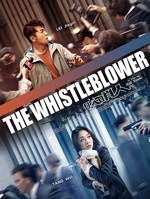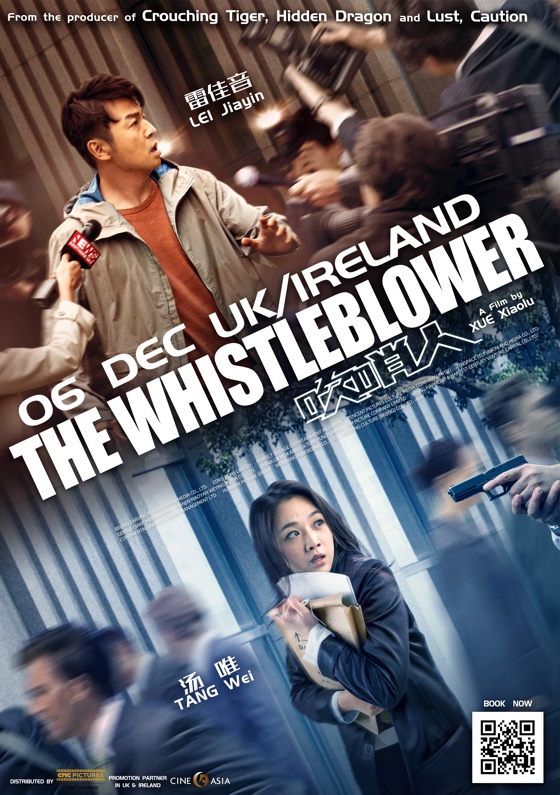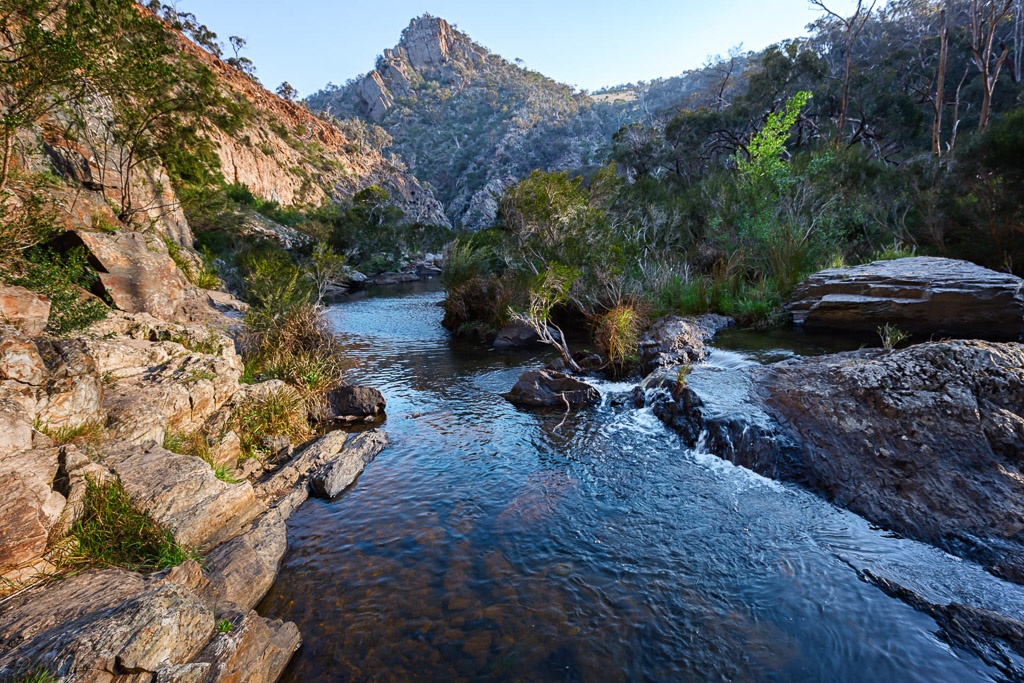Get ready for more of this: Big(ish)-budget Chinese action drama The Whistleblower opens today in the UK and the US, on the same day it opens in China, its primary market and where it is obviously meant to make a real splash. (The film is in only limited release on both sides of the Atlantic.) I don’t think anything like this has happened before, and it’s a clear indication of the increasing interest China has in infiltrating Hollywood. (I use the term expansively, to indicate the ecosystem of major English-language productions aimed at a global audience, not just the ones that come out of Los Angeles.) You’ve probably noticed in the past few years how the names of Chinese production companies are popping up a lot in the opening credits of blockbusters, even the ones with no discernible Chinese content. Now, Chinese filmmakers are coming for Western audiences with Chinese movies.

For the moment, the attention of Western audiences will remain undrawn, and not because of the language barrier; about half of The Whistleblower’s dialogue is actually in English. But this is an often ludicrous movie that lacks the thrills it’s aiming for and leans so heavily on preposterous coincidence and contrivance that it’s frequently laughable. (Either the villains are able to predict the future — as when they, more than once, are able to plant hidden cameras in places where they’d have no advance reason to, places they probably wouldn’t even know about — or else the plot is even more ridiculously convoluted than I was able to grasp, in ways that slipped by me.)
There’s a cultural barrier that contributes to the absurdity, too, as when writer-director Xiaolu Xue fails to understand what would constitute a scandal in the Western world, the sort of thing that would be considered so salacious, so juicy that it would dominate the news cycle for days in a nation such as Australia, where much of The Whistleblower is set. This scandal, as the movie posits it, is where the movie reaches a fever-pitch finale that is unlikely in the extreme, and yet it doesn’t feel like narrative desperation so much as naïveté. Perhaps what Xue thinks would get Westerners so outraged would actually appall more overtly demure Chinese sensibilities, but it doesn’t work for us.
Still, the globehopping of the story is the one aspect that makes it marginally intriguing, if only from the perspective of a culture watcher rather than someone simply looking for a diverting movie. This is the tale of Mark (Jiayin Lei), a Chinese ex-pat in Australia who works for an Australian corporation vying for a big contract with a Chinese city to install technology that converts coal to gas for energy use. At a meet-and-greet intended to grease wheels, Mark runs into Siliang (Wei Tang: Blackhat), his ex, who is working with a Chinese organization involved in the bid. Soon they stumble into what looks like a whole lot of corporate malfeasance surrounding an earthquake — or was it? *dum dum DUM* — at a coal-to-gas test installation run by Mark’s company in Africa. (Suburban Melbourne stands in for Malawi.) Now they are being chased all over Australia and Africa by big bad — and mostly white — guys with guns who want to stop them from uncovering the truth. Oh, and Mark hooked up with his ex at that work thing, so he’s getting shit at home from his wife, Judy (Xi Qi), too.

The Whistleblower has a blatant goal of introducing Chinese audiences to the concept of a whistleblower, which is… interesting, given that China isn’t particularly known for embracing such openness (though of course it’s not a Chinese company that Mark is trying to expose). But here’s the slightly more compelling stuff: The whole world here pivots on an axis that is completely unlike the one we’re used to seeing in movies like this. The US and Europe are not players here; all the action, literal and figurative, moves between Australia, China, and Africa (a continent on which, of course, the Chinese are exerting an increasingly more potent influence). That might not sound like a big deal until you actually see it onscreen… and it really hits home when you realize that all the Chinese characters are either flawed yet noble or outright heroes who will ultimately be hailed as such. (Chinese characters who might be villains? Their villainy is entirely offscreen.) Mark is literally the only Chinese person who works at his Australian company, and he is the one who will bring down all the white folks who run it, and save that Chinese city from an “earthquake” of its own were the coal-to-gas tech to be deployed there. (When white people aren’t villains here, their good deeds also happen offscreen.)
Of course there’s nothing unexpected in this! It’s a Chinese movie: naturally it is going to center Chinese characters even on a planetary stage. Hollywood movies do the same thing: mostly center Westerners (and mostly white men!) even on a planetary stage. Neither is ideal, and neither makes for the most engaging stories. (A Uyghur action hero, anyone?) But it’s when you are not part of the “neutral” that a movie assumes that you notice it most. It would be terrific if more Western audiences could get a taste of that.























I know this film is pretty shit, but I just have to see it! Just to see how well suburban Melbourne (where I live) really passes for Malawi! I do, too, like the idea that there is a world out there beyond the USA and Europe.
So it’s an area called Werribee that stands in for Malawi, if that helps you visualize it more.
Well, Beckton Gas Works stood in for Vietnam in Full Metal Jacket, so who are we to judge! Werribee is on Melbourne’s western fringe, and is the site of our largest sewage treatment plant. So it has a reputation for smelling bad! But it has a zoo, mansion and a national Park, so can offer a range of shooting locations. https://www.melbournewater.com.au/community-and-education/about-our-water/sewerage/western-treatment-plant/sewage-treatment-process
Sounds… charming?
The sewage farm dates from the late 19th century, and used indeed to be smelly. The more modern processes don’t need so large an area, and are less smelly, and much of the old sewage farm is now a wetlands and home to huge numbers of birds. The national park is beautiful!
Depends what Western audience you’re talking about. Certain audience members in the Western world have noticed this for a looong time…
That’s true. But it’s not the mainstream, or at least not in any way that has had any impact on the kinds of movies we get.
I see it as a film noir for most of its length. A mild-manner protagonist betrayed again and again by a femme fatale, conversations in seedy hotel rooms with rain beating on the window, and so on.The climactic banquet scene is strongly reminiscent of the banquet in Fight Club, even to the crucial confrontation in a men’s room.
It’s possible that old-fashioned noir full of these same-old cliches don’t work anymore. It’s really tough to feel any sympathy for a man like Mark here, just because he is “seduced” by a femme fatale. Men should know by now how to keep it in their pants.
Just saw this flick as the only (no mistake, only one) audience in the theatre. The legal concept of the film has the usual Chinese characteristic – only the corrupt Australians are handcuffed and charged – the Chinese counterparts are not seen to be brought to justice!
Along the same lines – only corporate corruption is explored, with no suggestion of governmental corruption.
Or if the corrupt Chinese *are* held to account, it happens entirely outside the context of the story and is not depicted.